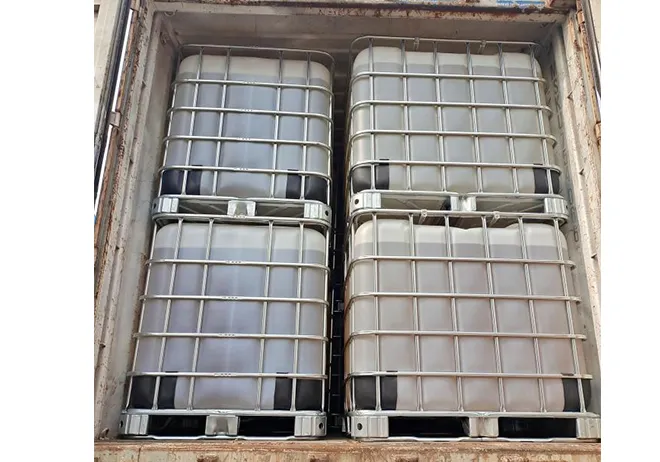
citric acid a preservative
Citric Acid as a Preservative An In-Depth Look
Citric acid, a weak organic acid found naturally in citrus fruits, has become an essential ingredient in the food industry, particularly as a preservative. Its ability to enhance flavor while simultaneously extending the shelf life of various products has made it a popular choice among manufacturers. This article explores the role of citric acid as a preservative, its benefits, and some considerations consumers should be aware of.
The Role of Citric Acid in Preservation
Citric acid acts as a preservative through several mechanisms. Firstly, it lowers the pH of food products, creating an acidic environment that inhibits the growth of bacteria, molds, and yeasts. Many microorganisms thrive in neutral pH conditions; thus, by making food more acidic, citric acid effectively slows down spoilage. This is particularly important for products such as canned goods, fruit juices, and sauces.
In addition to its antibacterial properties, citric acid also acts as an antioxidant. It can help prevent the oxidation of fats and oils in food, which can lead to rancidity, off-flavors, and loss of nutritional value. By reducing the rate of oxidation, citric acid helps maintain the quality and safety of food products for longer periods.
Benefits of Using Citric Acid
One of the significant advantages of using citric acid as a preservative is its wide availability and affordability. It is commonly manufactured through fermentation processes, making it a cost-effective solution for food manufacturers. Moreover, citric acid is recognized by food safety authorities, including the FDA and the European Food Safety Authority, as safe for consumption, with a long history of use in various food products.
Citric acid is also versatile. It is not only used in food preservation but also plays a role in flavor enhancement, acting as a souring agent that can improve the taste of products without the need for artificial additives. This quality makes it particularly valuable for natural and organic food products, which often aim to minimize the use of synthetic ingredients.
citric acid a preservative

Environmental Considerations
One aspect often overlooked in discussions about food preservatives is the environmental impact of their use. Citric acid is biodegradable, making it a more environmentally friendly choice compared to some synthetic preservatives that may persist in the environment. Its natural origin and minimal ecological footprint can appeal to consumers who are increasingly conscious of sustainable practices in food production.
Potential Drawbacks
While citric acid has many benefits, it is important for consumers to consider potential drawbacks. For individuals with a sensitivity or allergy to citric acid, consumption can lead to adverse reactions. However, such cases are relatively rare. Additionally, excessive consumption of citric acid can result in dental erosion and stomach upset, especially when found in concentrated forms in certain products.
Furthermore, while citric acid can help preserve food, it does not eliminate the need for proper storage and handling practices. Refrigeration and proper packaging are still crucial in maintaining the quality and safety of preserved foods, as citric acid alone cannot prevent spoilage from contamination or improper storage conditions.
Conclusion
Citric acid has established itself as a vital preservative in the food industry, offering a multifaceted approach to food safety and quality. Its ability to lower pH, inhibit the growth of unwanted microorganisms, and act as an antioxidant makes it a powerful tool for manufacturers aiming to extend shelf life and enhance flavor. As consumers seek products that are both safe and environmentally friendly, citric acid stands out as a natural and effective solution. However, it is essential to remain aware of personal sensitivities and the need for comprehensive food safety practices. Overall, citric acid exemplifies the balance between food preservation and consumer health, making it a cornerstone of modern food technology.
-
Pure Sodium Dichloroisocyanurate Dihydrate | Powerful DisinfectantNewsAug.29,2025
-
Industrial Chemicals: Quality & Purity for Every IndustryNewsAug.28,2025
-
Nitrile Rubber Honoring Strict Production StandardsNewsAug.22,2025
-
Aspartame Ingredients Honoring Food Safety ValuesNewsAug.22,2025
-
Fertilizer for Balanced Plant NutritionNewsAug.22,2025
-
Cyanide Gold Processing with High Purity AdditivesNewsAug.22,2025
-
Formic Acid in Textile Dyeing ApplicationsNewsAug.22,2025
Hebei Tenger Chemical Technology Co., Ltd. focuses on the chemical industry and is committed to the export service of chemical raw materials.
-

view more DiethanolisopropanolamineIn the ever-growing field of chemical solutions, diethanolisopropanolamine (DEIPA) stands out as a versatile and important compound. Due to its unique chemical structure and properties, DEIPA is of interest to various industries including construction, personal care, and agriculture. -

view more TriisopropanolamineTriisopropanolamine (TIPA) alkanol amine substance, is a kind of alcohol amine compound with amino and alcohol hydroxyl, and because of its molecules contains both amino and hydroxyl. -

view more Tetramethyl Thiuram DisulfideTetramethyl thiuram disulfide, also known as TMTD, is a white to light-yellow powder with a distinct sulfur-like odor. It is soluble in organic solvents such as benzene, acetone, and ethyl acetate, making it highly versatile for use in different formulations. TMTD is known for its excellent vulcanization acceleration properties, which makes it a key ingredient in the production of rubber products. Additionally, it acts as an effective fungicide and bactericide, making it valuable in agricultural applications. Its high purity and stability ensure consistent performance, making it a preferred choice for manufacturers across various industries.





